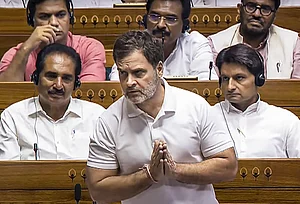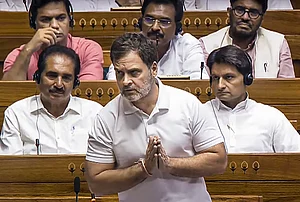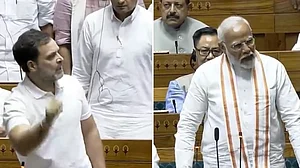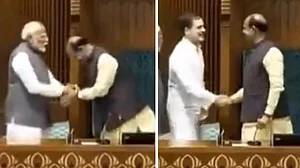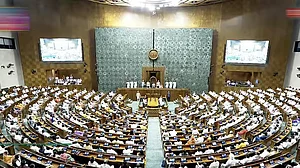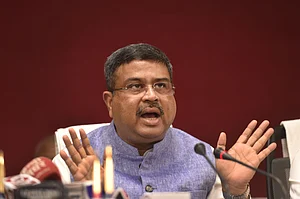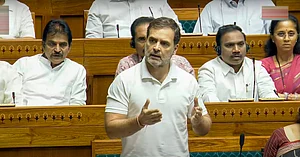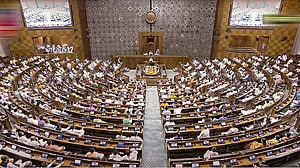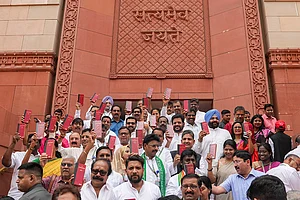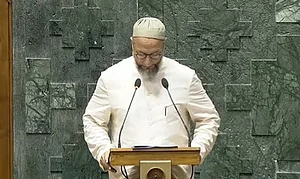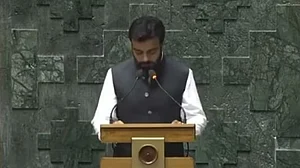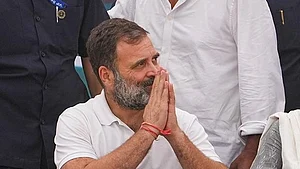
Name: Lok Sabha
The Lok Sabha, also called the House of the People, is the lower house of the bicameral Parliament of India. It is one of the two houses of the Indian Parliament, the other being the Rajya Sabha or Council of States. The Lok Sabha plays a key role in the legislative process, representing the people of India and holding the government accountable. This article will provide a detailed account of the formation, composition, powers and responsibilities of the Lok Sabha, as well as its early functions and current functions.
The Lok Sabha was established on January 26, 1950, when the Constitution of India came into force. It was made the more powerful of the two houses of Parliament, with the Rajya Sabha exercising control over its functions. The Lok Sabha is composed of representatives of the people chosen by direct election on the basis of universal adult suffrage. The Constitution allows a maximum of 550 members in the House, with 530 members representing the states and 20 representing the Union Territories. Currently, the Lok Sabha has 543 seats, which are occupied by the elected representatives.
The election process for the Lok Sabha is based on universal adult suffrage, which means that all Indian citizens above the age of 18 are eligible to vote. Elections are held every five years, with the first Lok Sabha election being held in 1952. The election process involves the direct election of members from territorial constituencies in the states and union territories. Members from union territories are elected by direct election, while members from the Anglo-Indian community are nominated by the President.
Powers and Responsibilities
The Lok Sabha has several major powers and responsibilities:
Passing bills
The Lok Sabha has the power to pass bills, which are then sent to the Rajya Sabha for consideration. If the Rajya Sabha does not agree with the bill, it may be sent to a joint session of both houses, where the decision of the Lok Sabha prevails. The Lok Sabha also has the power to pass bills during a financial emergency declared by the President.
Budget and Finance
The Lok Sabha is responsible for the passage of the Union Budget, which outlines the government's financial plans and expenditures for the coming year. The Lok Sabha also has the power to approve the annual financial statement, which contains the government's financial activities and expenditures.
Impeachment and Expulsion
The Lok Sabha has the power to impeach the President of India on charges of violating the Constitution. It can also remove judges of the Supreme Court or the High Courts.
Oversight and Accountability
The Lok Sabha plays an important role in keeping the government accountable. It can pass a no-confidence motion against the government, which may lead to the government resigning or the dissolution of the Lok Sabha. The Lok Sabha also has the power to question the policies and actions of the government through Question Hour.
Procedure and Sessions
The Lok Sabha follows a prescribed procedure for conducting its business. The Rules of Procedure and Conduct of Business in Lok Sabha govern the procedure in the House. Items of business received from ministers or private members and accepted by the Speaker are included in the daily list of business, which is printed in advance and distributed to the members.
The Lok Sabha holds its sessions three times a year: Budget Session: February to May Monsoon Session: July to September Winter Session: November to mid-December During the session, the Lok Sabha generally holds its sittings from 11 am to 1 pm and from 2 pm to 6 pm. On some days, sittings are held continuously without a lunch break and are even extended beyond 6 p.m. depending upon the business before the House. The Lok Sabha generally does not sit on Saturdays and Sundays and other closed holidays. Preliminary Business and Major Events The Lok Sabha has played a vital role in shaping India's democracy since its inception.
The Lok Sabha has played a vital role in shaping India's democracy. Some of the major events and milestones are as follows:
First Lok Sabha Elections: The first Lok Sabha elections were held in 1952. The Indian National Congress won 364 out of 489 seats and Jawaharlal Nehru became the first Prime Minister of India.
Composition of the Council of Ministers: The Lok Sabha is responsible for the formation of the Council of Ministers, which advises the President and is collectively responsible to the Lok Sabha.
Passage of Major Legislation: The Lok Sabha has passed several landmark bills, including the Constitution (Forty-second Amendment) Act, 1976, which introduced the concept of a Uniform Civil Code in India.
